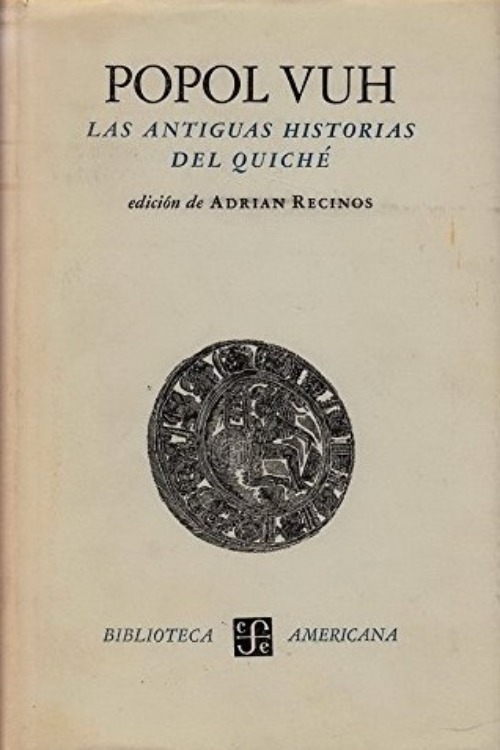Text summary
From: Book · Adrián Recinos · 1947

Text
Unknown language
Background
Adrián Recinos seemingly found the original Francisco Ximenez manuscript from Newberry Library in Chicago, IL. As a result, Recinos translated it into Spanish in 1947, leading the way for English translations in 1950 and 1954 by Delia Goetz and Sylvanus G. Morley. Recinos was also a Mayan scholar and writer who was born in Guatemala.[1]
Notes
Cite this page
OMNIKA Foundation Contributors. ""Popol Vuh": Partial Spanish Transcript by Adrián Recinos." OMNIKA – World Mythology Index, OMNIKA Foundation, 06 Mar. 2019, omnika.org/stable/31. Accessed 4 Mar. 2026.
OMNIKA (2019, March 06). "Popol Vuh": Partial Spanish Transcript by Adrián Recinos. Retrieved from https://omnika.org/stable/31
OMNIKA Foundation Contributors. ""Popol Vuh": Partial Spanish Transcript by Adrián Recinos." Las Vegas, NV: OMNIKA Foundation. Created March 06, 2019. Accessed March 4, 2026. https://omnika.org/stable/31.





